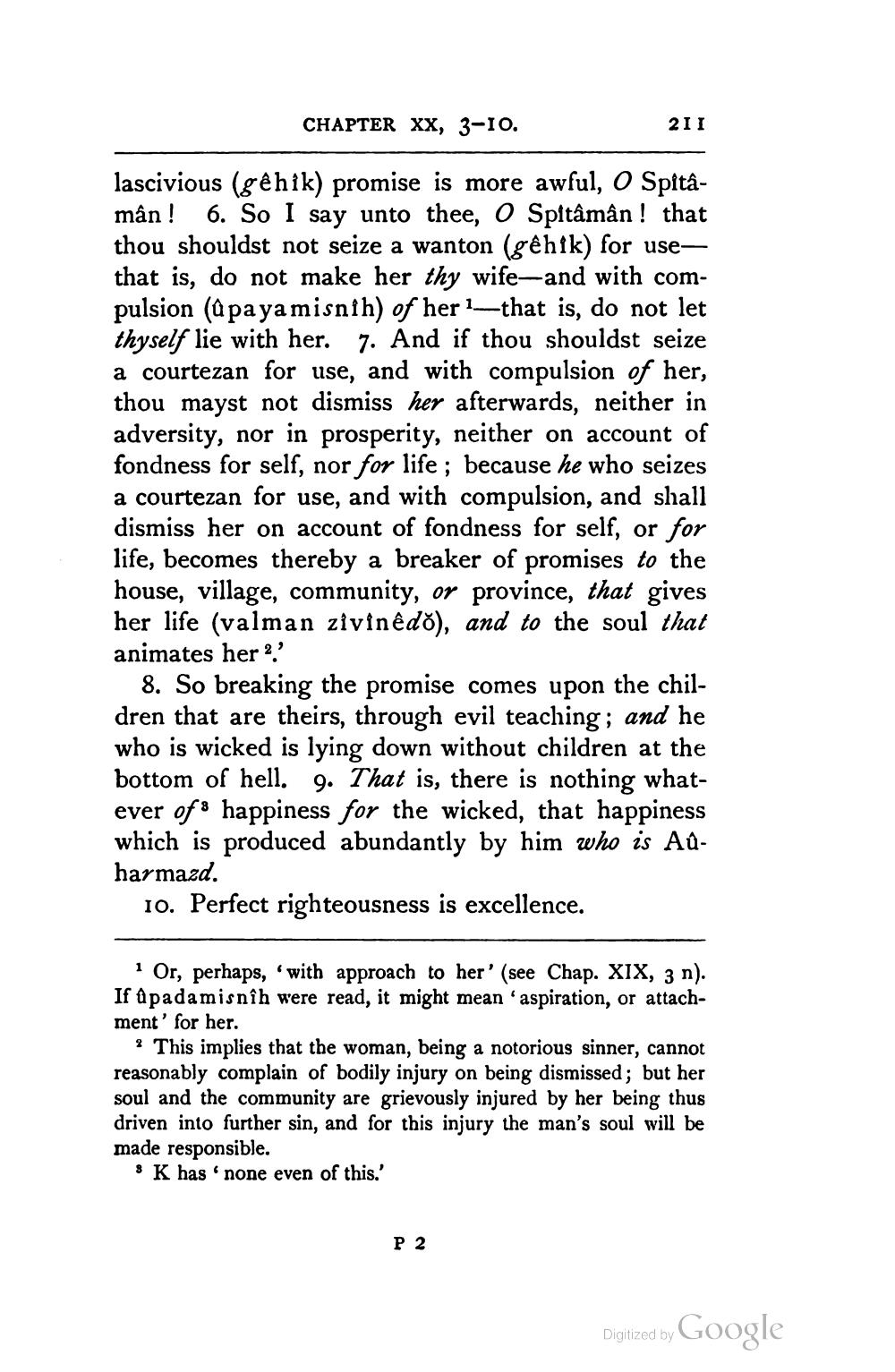________________
CHAPTER XX, 3-10.
2II
lascivious (gêhîk) promise is more awful, O Spitamân! 6. So I say unto thee, O Spitâmân! that thou shouldst not seize a wanton (gêhik) for usethat is, do not make her thy wife-and with compulsion (upaya misnih) of her that is, do not let thyself lie with her. 7. And if thou shouldst seize a courtezan for use, and with compulsion of her, thou mayst not dismiss her afterwards, neither in adversity, nor in prosperity, neither on account of fondness for self, nor for life ; because he who seizes a courtezan for use, and with compulsion, and shall dismiss her on account of fondness for self, or for life, becomes thereby a breaker of promises to the house, village, community, or province, that gives her life (valman zivinêdo), and to the soul that animates her?'
8. So breaking the promise comes upon the children that are theirs, through evil teaching; and he who is wicked is lying down without children at the bottom of hell. 9. That is, there is nothing whatever of s happiness for the wicked, that happiness which is produced abundantly by him who is Allharmazd.
10. Perfect righteousness is excellence.
1 Or, perhaps, with approach to her' (see Chap. XIX, 3 n). If û padamisnih were read, it might mean 'aspiration, or attachment' for her.
? This implies that the woman, being a notorious sinner, cannot reasonably complain of bodily injury on being dismissed; but her soul and the community are grievously injured by her being thus driven into further sin, and for this injury the man's soul will be made responsible.
SK has 'none even of this.'
P2
Digitized by Google




